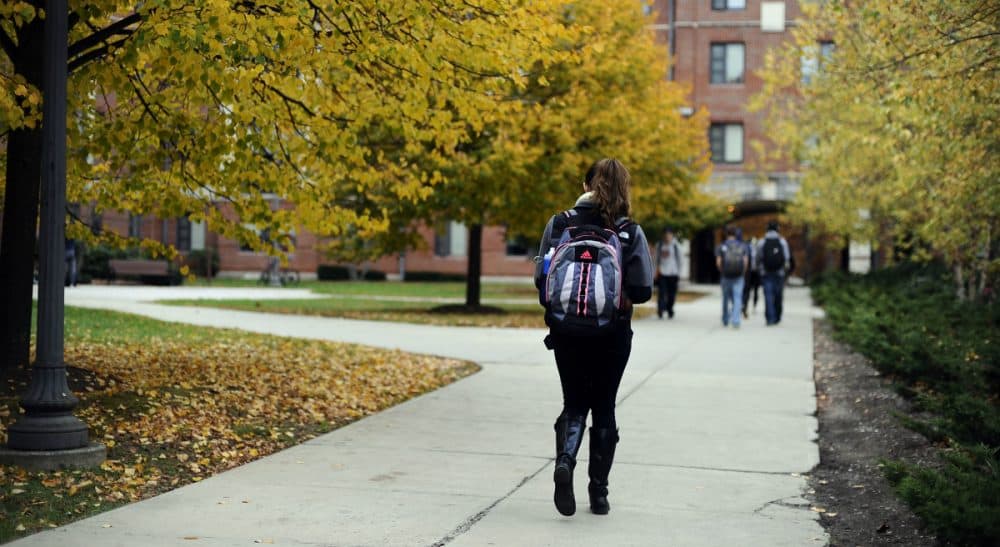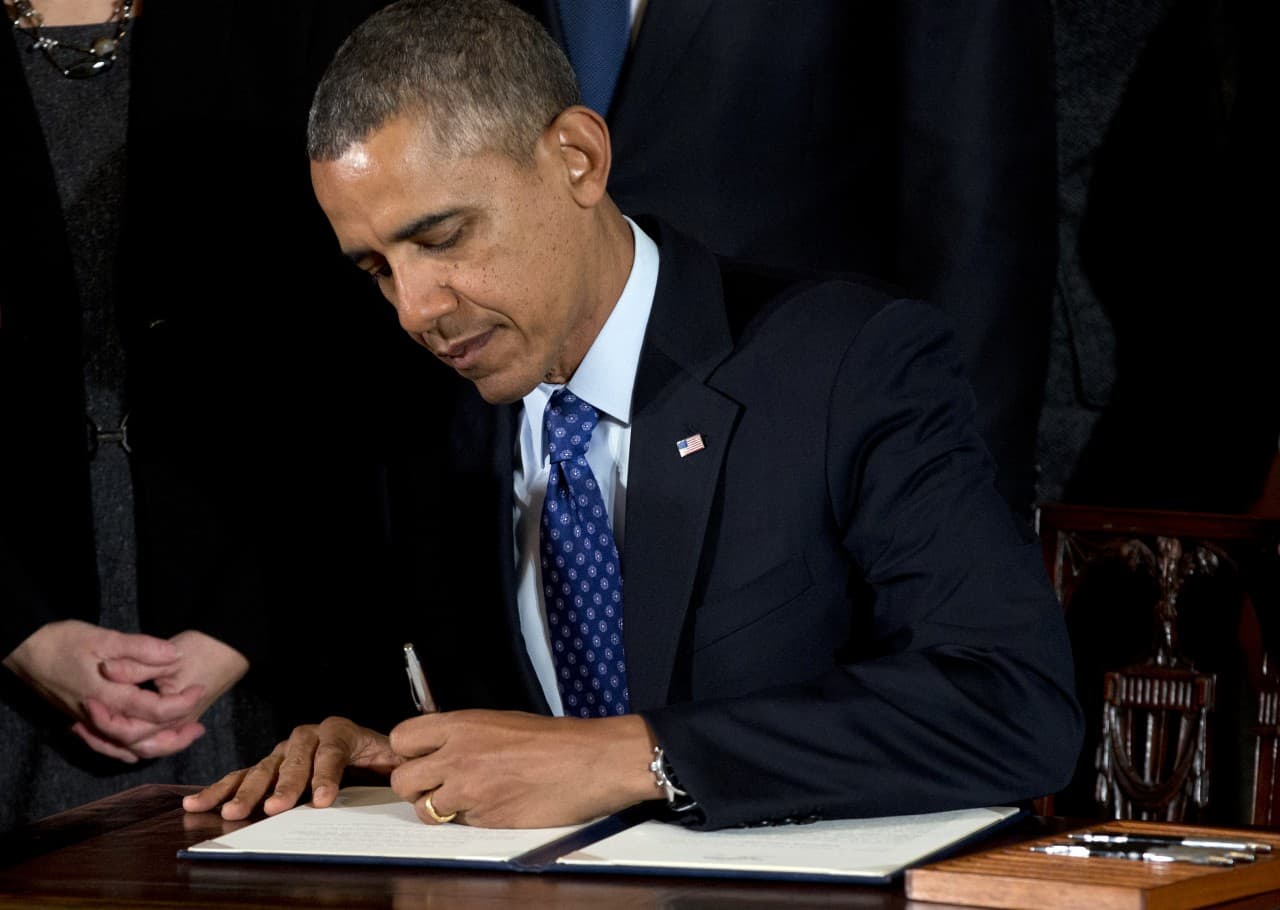Advertisement
Victimizing The Accused? Obama's Campus Sexual Assault Guidelines Raise Concerns

“Not Alone,” the White House entitled its task force report on campus sexual assaults. “Believe the Victim,” the report might as well have been called. It reflects a presumption of guilt in sexual assault cases that practically obliterates the due process rights of the accused. Students leveling accusations of assault are automatically described as “survivors” or “victims” (not alleged victims or complaining witnesses), implying that their accusations are true.
When you categorically presume the good faith, infallible memories and entirely objective perspectives of self-identified victims, you dispense with the need for cumbersome judicial or quasi-judicial proceedings and an adversary model of justice. Thus the task force effectively prohibits cross-examination of complaining witnesses: “The parties should not be allowed to cross-examine each other,” the report advises, denying the fundamental right to confront your accuser.
Every student accused of a crime or disciplinary infraction has an equal right to due process and fair adjudication of charges.
Alleged victims are supposed to be protected from “hurtful questioning.” The impulse to protect actual victims from the ordeal of a cross-examination by their attackers is laudable. But by barring cross-examination, you also protect students who are mistaken or lying, and you victimize (even traumatize) students being falsely accused.
School officials are also encouraged to substitute a “single investigator” model for a hearing process, which seems a prescription for injustice. As the Foundation for Individual Rights in Education points out, pursuant to this model, “a sole administrator would be empowered to serve as detective, judge and jury, affording the accused no chance to challenge his or her accuser’s testimony.”
These “reforms” exacerbate an already dangerously unreliable approach to evaluating charges of assault. In 2011, the Department of Education issued guidelines requiring colleges and universities to employ a minimal “preponderance of evidence” standard in cases involving allegations of harassment or violence. This is the lowest possible standard of proof, which merely requires discerning a 50.01 percent chance that a charge is more likely than not to be true. It facilitates findings of guilt, which will be merited in some cases, and not others. For students wrongly accused, the consequences of a guilty finding can be as dire as a not guilty finding for students actually victimized.

These are difficult, potentially traumatizing cases for all parties involved, and not surprisingly some students complaining of sexual assault prefer not to participate in investigations or hearings. How do you evaluate their claims? If you’re the White House task force, you simply presume that they’re true: “Where a survivor does not seek a full investigation, but just wants help to move on, the school needs to respond there too.” Move on from having “survived” precisely what? You can sympathize with a victimized student who doesn’t want to pursue a claim and still wonder how school officials can respond fairly and intelligently to an accusation that hasn’t been investigated and may or may not be true.
Does this approach exaggerate or trivialize the problem at hand? Sexual assault is a serious felony, the task force and victim advocates would agree. According to the Administration, one in five students are victimized by it. Assume that estimate is accurate and imagine that 20 percent of the people in a community are suffering violent assaults. Residents would likely demand a stronger police presence and stepped up criminal prosecutions, rather than informal neighborhood councils to “adjudicate” complaints. But on campus, felony complaints are to be prosecuted informally, the way schools might prosecute violations of a dress code, without affording accused students any meaningful rights.
Justifications for this include the particular ambiguities of sexual assault charges on campus. Alleged assaults often involve alcohol, actual victims may know their attackers and, in a closed campus community, may be hesitant to press accusations against them. The irony is that these factors complicating the prosecution of campus assaults and inspiring calls for informal, non-adversarial responses to them are the same factors that, as victim advocates rightly assert, have encouraged victim blaming and prevented law enforcement authorities from taking allegations of campus assaults seriously.
The solution to the problem of ignoring sexual assault charges shouldn’t be assuming that they’re true. The “believe the victim” biases underlying the White House task force report aren’t subtle or inconsequential, but they’re not generally recognized by left of center media. The occasional students’ rights watchdog, like Brooklyn College professor KC Johnson, offers a critical, in depth analysis of the Administration’s approach, but in general reactions are dictated by partisan or ideological biases: The right has its own politically correct mandate to oppose any Obama Administration civil rights initiative. The left labors under a pop feminist mandate to reflexively believe self-identified victims of sexual assault.
Similar assumptions about victimization often dictate how people view the rights of the accused and their accusers. Compare the administration’s disregard for due process in formulating disciplinary procedures for campus sexual misconduct complaints to its critique of harsh, due process-less disciplinary practices in elementary and secondary schools.
The 'believe the victim' biases underlying the White House task force report aren’t subtle or inconsequential...
School discipline tends to be discriminatory, at least in effect, targeting racial and ethnic minorities, so civil rights advocates outside the Administration are rallying against it, rightly seeking due process protections for students accused. But in response to allegations of sexual misconduct in colleges and universities, the same advocates generally favor a prosecutorial approach that sacrifices due process over protections for presumed victims.
How do we account for these opposing approaches to student rights? Considering elementary and secondary school disciplinary practices, the administration sympathizes with students accused. In campus sexual assault cases, it sympathizes with accusers. But rights shouldn’t be allocated on the basis of subjective sympathies, unless we want to encourage discrimination — the sort of discrimination that plagues minority students in public schools. Every student accused of a crime or disciplinary infraction has an equal right to due process and fair adjudication of charges. You’re also “Not Alone,” the Administration should guarantee students accused of sexual assault. You’re accompanied by fundamental rights.
Related:
- Campus Sexual Assaults Are Targeted In New White House Report
- 7/2/13: Students Demand Better Response To Campus Rape (Here & Now)
- 2/11/13: Deans Are Out Of Their Depth: Sexual Assault On College Campuses, by Eileen McNamara:
